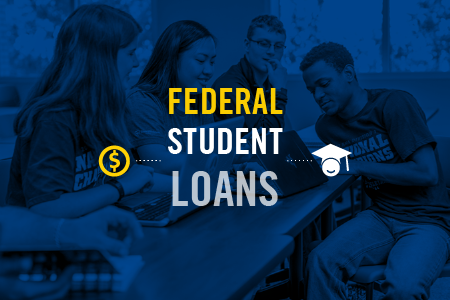How do I get federal student loans?

Grants and scholarships are great, but they don’t always cover the full cost of college. What other options do you have? You can accept federal student loans to help you pay for school. Take a look at a few questions you need to ask before you get started.
What are federal student loans?
Federal loans are awarded by the government. These types of loans are made for students. They have low interest rates and flexible repayment options after you graduate. There are a few different types, but the most common is called a Stafford Loan.
Don’t forget to check if your student loan is subsidized or unsubsidized. Subsidized means the government is going to pay the interest for you while you’re in school, while unsubsidized means that your interest is accruing and you’ll have to pay it back after you graduate.
How do I apply for federal student loans?
The first step to being awarded federal loans is to fill out your Free Application for Federal Student Aid (FAFSA). Your FAFSA is what helps the government decide how much money you need to pay for college. The FAFSA opens every year on Oct. 1. Since all of your federal financial aid (scholarships, grants and loans) are decided by your FAFSA, you’ll want to complete your application as soon as possible.
After your application is processed, you’ll be notified of how much money in loans the federal government is offering you and what kind they are. You’ll accept those loans through your college or university.
Whether your student loans are federal or private, you’ll fill out a master promissory note (MPN) through the studentloan.gov website. This document acknowledges that you’re taking on debt to pay your college bills.
When do I start paying back my student loans?
With federal loans, you won’t start repaying them until a set amount of time after you graduate (usually about 6 months). This is called your “grace period.” You’ll set up a repayment plan ranging from 10-30 years that takes into account your income and family size when setting your monthly payment.
Keep in mind, you’re responsible for paying back any and all loans (federal or private) even if you don’t graduate. Don’t freak out though, there are plenty of students just like you trying to figure out how to pay for college – and we want to help. Your bachelor’s degree is going to take you places and help you earn more money after graduation. Have a question about student loans or other financial aid? Give us a call or shoot us an email today.








